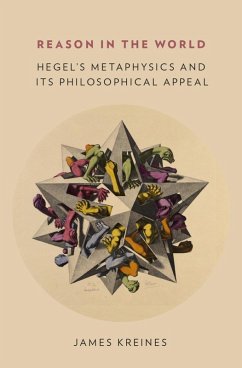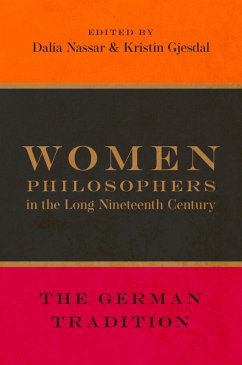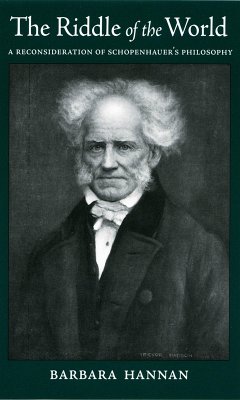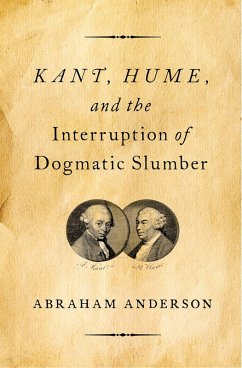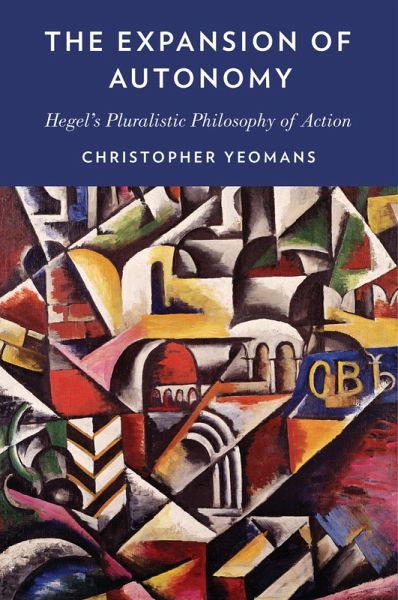
The Expansion of Autonomy (eBook, ePUB)
Hegel's Pluralistic Philosophy of Action
Versandkostenfrei!
Sofort per Download lieferbar
27,95 €
inkl. MwSt.
Weitere Ausgaben:

PAYBACK Punkte
14 °P sammeln!
Georg Lukács wrote that "there is autonomy and 'autonomy.' The one is a moment of life itself, the elevation of its richness and contradictory unity; the other is a rigidification, a barren self-seclusion, a self-imposed banishment from the dynamic overall connection." Though Lukács' concern was with the conditions for the possibility of art, his distinction also serves as an apt description of the way that Hegel and Hegelians have contrasted their own interpretations of self-determination with that of Kant. But it has always been difficult to see how elevation is possible without seclusion,...
Georg Lukács wrote that "there is autonomy and 'autonomy.' The one is a moment of life itself, the elevation of its richness and contradictory unity; the other is a rigidification, a barren self-seclusion, a self-imposed banishment from the dynamic overall connection." Though Lukács' concern was with the conditions for the possibility of art, his distinction also serves as an apt description of the way that Hegel and Hegelians have contrasted their own interpretations of self-determination with that of Kant. But it has always been difficult to see how elevation is possible without seclusion, or how rigidification can be avoided without making the boundaries of the self so malleable that its autonomy looks like a mere cover for the power of external forces. Yeomans explores Hegel's own attempts to grapple with this problem against the background of Kant's attempts, in his theory of virtue, to understand the way that morally autonomous agents can be robust individuals with qualitatively different projects, personal relations, and commitments that are nonetheless infused with a value that demands respect. In a reading that disentangles a number of different threads in Kant's approach, Yeomans shows how Hegel reweaves these threads around the central notions of talent and interest to produce a tapestry of self-determination. Yeomans argues that the result is a striking pluralism that identifies three qualitatively distinct forms of agency or accountability and sees each of these forms of agency as being embodied in different social groups in different ways. But there is nonetheless a dynamic unity to the forms because they can all be understood as practical attempts to solve the problem of autonomy, and each is thus worthy of respect even from the perspective of other solutions. "Everyone recognizes the importance of Hegel's critique of Kantian morality as empty, but until now there has not been a fully worked out presentation of how Hegel's views in his discussion of Sittlichkeit actually provide the missing content. Yeomans has finally provided us with a reconstruction of Hegel's mature position that makes good on all the promissory notes that Hegel (and his commentators) gives in his famous descriptions of his alternative to Kantian ethics. Yeomans offers a compelling account of Hegel's view of individuality, societal differentiation and its roots in Kantian and Fichtean moral theory. The book will be a major contribution to the scholarship on Hegel's practical philosophy."-Dean Moyar, Associate Professor of Philosophy, Johns Hopkins University "Yeomans' book is a subtle, detailed and original explication of some key ideas having to do with how Hegel's general philosophy of action (or theory of the nature of agency) relates to his social and political philosophy. It is attentive to Hegel's texts, and it ties its discussions into all the relevant contemporary themes in philosophy. It is very ambitious in its attempt to make Hegel's theory into a real competitor to other views that are currently in wide play in the philosophical world. It will very likely become one of the key texts in the secondary literature on Hegel."-Terry Pinkard, University Professor of Philosophy, Georgetown University
Dieser Download kann aus rechtlichen Gründen nur mit Rechnungsadresse in A, B, BG, CY, CZ, D, DK, EW, E, FIN, F, GR, HR, H, IRL, I, LT, L, LR, M, NL, PL, P, R, S, SLO, SK ausgeliefert werden.





